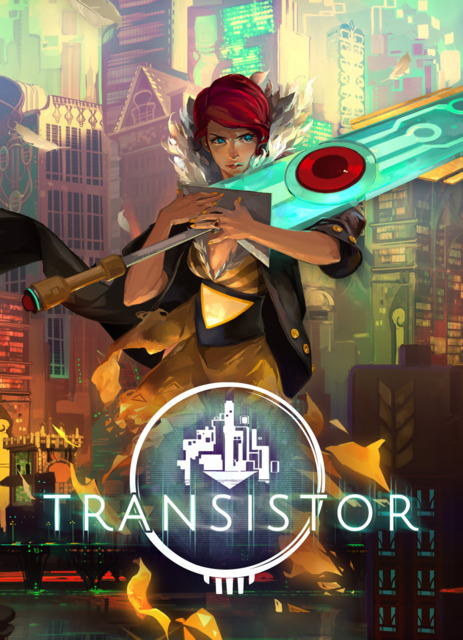Minor spoilers ahead.
I just beat the game and I think Transistor has issues on a very fundamental level in terms of storytelling.
I enjoyed the game but didn't love it. While it can often look very striking, offering beautiful scenery and wonderful lighting - just as often I felt it funneled you through very similar looking, sterile environments only to face skirmish after skirmish with the same handful of enemies. As combat is quite literally the only gameplay aspect present, by the end I was quite frankly a bit tired of it. I also didn't spend a whole ton of time searching through every single corner and reading every single datafile because I didn't feel the city of Cloudbank was engaging enough to do so - a matter of opinion of course.
This is where I think the narrative shortcomings come into play. While the gameplay didn't hook me all too much, I was interested in the story. Here is this noir-mystery: a murder, a young woman robbed of her voice, and a mysterious guide leading you forward with pursuers hot on your tracks through a Tron like city.. I was very intrigued. Yet playing through the game in a very casual and straightforward manner I finished Transistor with a ton of questions unanswered. Very basic questions too. Like why did they steal her voice? What were they using the process for exactly? What is the process? To do work for them, but what work? Why were they killing artists? How do they have transistors inside the transistor and why does killing someone with it let you leave? Why did the man inside the Transistor start to get "woozy" whenever the snake boss was around? So on and so forth..
I've read that a lot of questions get answered in NG+ - I assume through the acquisition of new powers and reading of their data entries. I feel like it's in the best interest of a game to make sure the very basic story beats are told along the way. Stashing away important narrative elements in text files is a terrible design choice in my opinion. Especially when some of those files are only accessible after you've level up enough to unlock them. Playing a game for the second time around should reveal interesting bonus tidbits, not complete the initial picture.

Log in to comment